#ALWAYS REBLOG HUNGARIAN PARIS
Text
(Some) Greek Gods as Historical Figures
So some days ago I secretly logged back into Mythology and Cultures amino and I stumbled across post of casting historical figures as the gods from Greek mythology. Of course, I hated it, so I made my version of this.
Note: Of course, this is going to have quite a lot of Napoleonic figures, since I am more familiar of this period, but please do reblog this post (or tag me on another post) with the hashtag “#mythical figures as historical people” and add some more of your historical figure Greek God fancasts!
Note 2: this post is for entertaining purpose, and just me introducing some guys to y’all and I am not a historian myself and hopefully you all would still like my takes😅
1. Zeus - Louis XIV of France
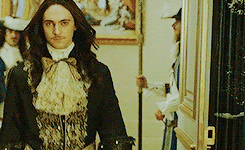
First and foremost, I shall introduce the king of gods featured in Greco-Roman myths. You may ask, why don’t I cast Henry VIII of England? Well, my reason is very simple: Henry is far from accurate to Zeus in actual myths.
To be honest, Zeus has a more “absolute power” energy in it, and Louis XIV totally has rocked it (like that iconic line “l’état, c’est moi (I am the state)”). Well, Henry also has that kind of energy but everyone only remembers his six wives and the uncountable number of bloodshed (not to mention Catherine of Aragon is a much better fighter than him—got this from Horrible Histories OwO)... Anyways, Louis XVI is basically a Zeus.
2. Hera - Catherine of Aragon

This brings to Catherine of Aragon herself. She’s a total Q U E E N and if you have watched “Six” the musical you already got what I mean (like, being the wife who married to Henry the longest). There’s also the early warlike aspect in Hera (featured in Homer’s works) that Catherine has it as well (at least you know that she’s getting more victories than Henry if you have watched Horrible Histories season 6, in the episode with Rowan Atkinson playing Henry VIII (which is sad because I want Ben Willbond to play him—he iconic to the HH fandom)), making her a great casting of Hera.
Hera, in my opinion, is a very strong woman who has to take Zeus’s shit and I could totally understand why she took revenge on the girls that Zeus has slept with—but anyways, hopefully you guys would like it :3
3. Aphrodite - Pauline Bonaparte
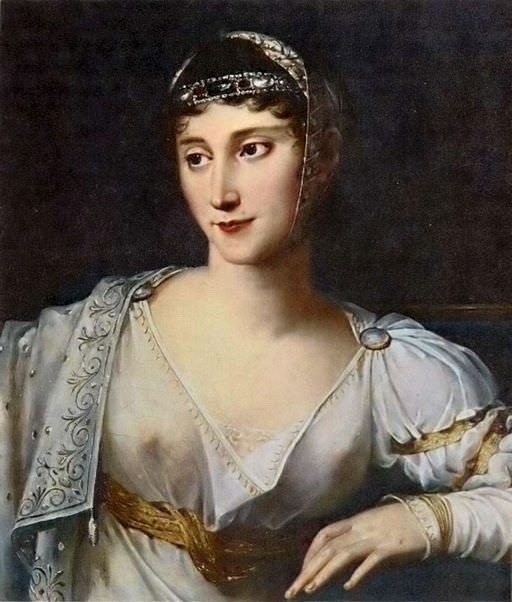
This is half-self-explanatory, really—just look at that statue she posed as Venus, the Roman equivalent of Aphrodite.
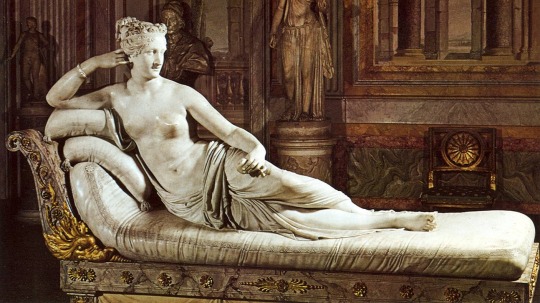
Pauline was famed for her beauty in her time, also a big chunk of scandals from her affairs (which bugs her big brother Napoleon, a lot). Nevertheless, despite her big spending habits and a great sexual appetite, she always helped Napoleon in some surprising ways (like she sold her house in Paris to the Duke of Wellington to get the funds for Napoleon).
Just like Aphrodite herself, Pauline harnessed her beauty very well. Thus, I rest my case.
4. Apollo - Joachim Murat or Emperor Franz Joseph I of Austria
(Warning: long content ahead)
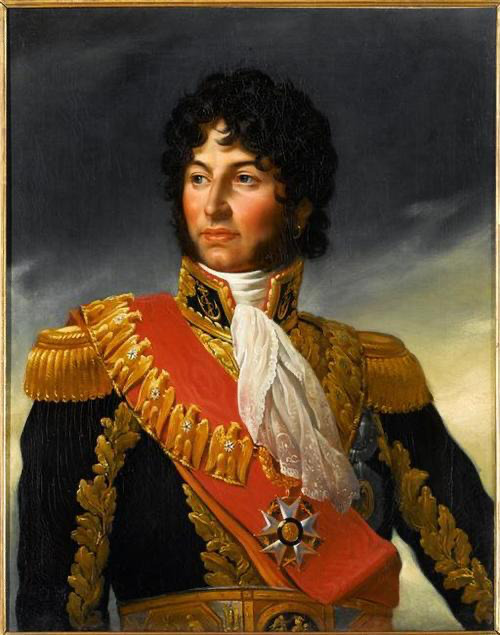
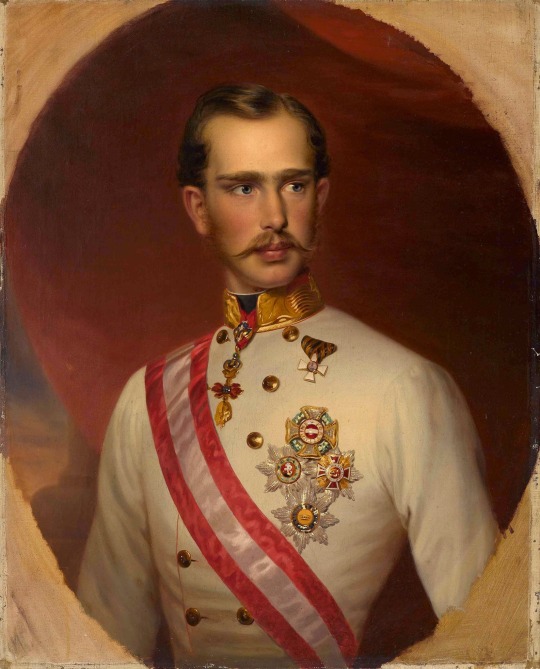
Firstly, let me briefly introduce them because you guys might not know them much.
Joachim Murat was a marshal of France, also one of Napoleon’s brother-in-law, grand duke of Berg and Cleves from 1806 to 1808 and the King of Naples from 1808 to 1815. After the wars, he attempted to escape yet was caught and executed in 1815 in Pizzo, Italy (if you have read of Alexandre Dumas’s “Famous Crimes” you might know him—by the way no one has cut his head off and sent it to that big nose King Ferdinand).
For those who have watched “Elisabeth” or the “Sissi” movies, you might know Franz Joseph I of Austria already but you might not know much about himself besides being the husband of the (in)famous Empress Sisi (ie. Empress Elisabeth of Austria). He was the Emperor of the Austria from 1848 to his death in 1916—one of the longest reigning European monarchs in history. During his reign, the empire had been through a lot of change, most notably, the creation of Austria-Hungary. Nevertheless, he was also the Emperor who started World War I and he died of old age in the midst of the Great War.
For Apollo, I’m not casting musicians because this is quite overdone. I rather want to shed a light to the other arts that he represented in Greco-Roman mythology. This makes me want to draw a parallel to Joachim Murat as he was also a great sucker of classical literature. Plus, he also was known to be a flamboyant dresser (his nickname was “the Dandy King” by the way), also the designer of the uniforms of the Neapolitan army (with an excessive amount of amaranth, perhaps his favourite colour). Really, everyone just sees him as a great flamboyant himbo but in reality, he’s iconically badass in the battlefield as the First Horseman of Europe. Well, also he’s known for being extremely good with women even though his wife Caroline was fierce as hell. So, in my opinion, he fits the image of Apollo that we know.
However, you guys might feel surprised why I picked Franz Joseph for Apollo. Well, he really... was a rather mediocre ruler in my opinion, and perhaps our most memorable image of him was the senile emperor who signed the declaration of war to Serbia. Nevertheless, he was a well-liked man among his subjects, at least to some old citizens of Austria-Hungary telling future generations. Besides, culture flourished in Vienna under his reign—with notable figures like Sigmund Freud, Ludwig Wittgenstein and Erwin Schrödinger. Despite the series of unfortunate events which made the empire started to crumble, Austria-Hungary arguably has its cultural importance in Europe. Sounds like what Apollo would do if he’s a ruler, somehow.
Well, enough of his political achievements, let’s talk about his private life... which was probably the actual reason why I picked him.
Enter Duchess Elisabeth in Bavaria, the Empress of Austria and Queen of Hungary, also known as Sisi.
On a side note, Marshal Louis-Alexandre Berthier of France, Prince of Neufchâtel and of Wargram, was Empress Sisi’s grand-uncle in-law via his marriage to Duchess Maria Elisabeth in Bavaria

Absolutely love Pia as Elisabeth in the musical so please don’t mind me using a gif from this :3 ((also, “Elisabeth” spoiler alert
Franz originally was to marry her sister Helene (nicknamed Néné), nevertheless, on the first meeting in Bad Ishl, he has fallen for the young Elisabeth, head over heels—making him defying his domineering mother, Archduchess Sophie, for the very first time. Elisabeth also liked him and did not expressed her refusal either, so they got married in St. Augustine’s Church in 29th April, 1854.
However, the marriage was not well. Sisi was not accustomed to the strict Austrian court especially Archduchess Sophie (also she was not really a fan of intimacy). Poor Franz was rather helpless in situations between his mother and his wife, and eventually, Sisi chose her freedom over her duty as Empress, traveling around the world. They two briefly went back together during the Austro-Hungarian compromise, yet she was constantly not there. Eventually, Sisi was assassinated by an anarchist named Luigi Lucheni during her stay in Geneva, Switzerland, and Franz was devastated over her death (“she will never know how much I love her”).
To Franz, he loved her so, but he really didn’t understand her needs. Even though he had countless mistresses and female companions in Vienna, he still missed his wife. I say, he was really unlucky when it comes to love. Like Apollo himself, he dated countless nymphs and humans, but a lot of his notable relationships did not have a good end. (Probably Cyrene was the most lucky one, yet she also has chosen to be left alone after mothering several children with Apollo.) For this, I picked Franz Joseph as Apollo.
5. Ares - Jean Lannes or Michel Ney
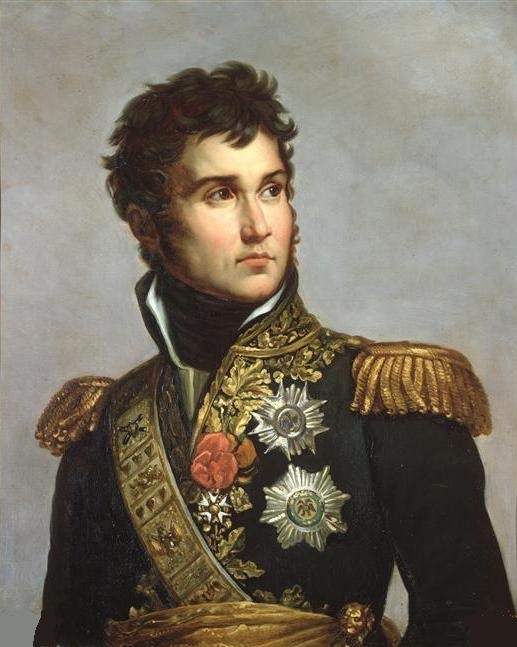
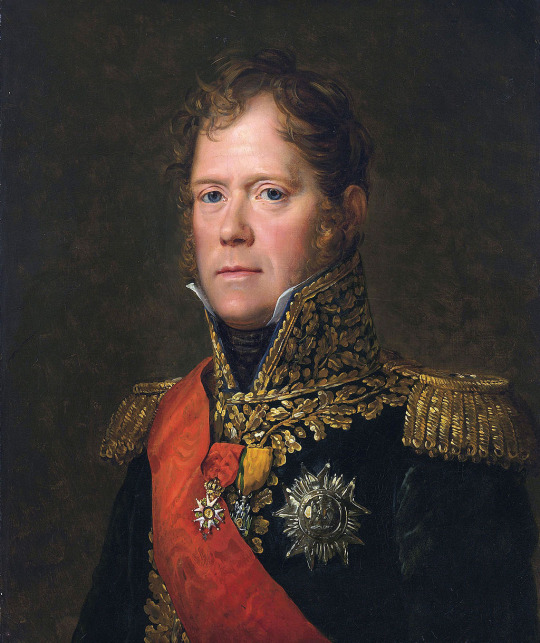
As usual, for those who don’t know much history, I shall briefly introduce my babeys these two great soldiers.
Jean Lannes was one of the marshals of Napoleon, known for being one of Napoleon’s closest friends and his fiery personality, and is considered one of the best marshals of the 1st French Empire. His finest moments including the Battle of Ratisbon in which he led his men to storm the well-guarded city with ladders (hence his nickname “ladder lord” in our very humble Napoleonic marshalate fandom :3). Sadly, he died of the wound he received in the battle of Aspern-Essling in 1809.
Michel Ney was also one of the marshals of Napoleon, known for his extreme valour (yep, he is known as the “Bravest of the Brave”). As you might know, he was one of the marshals who was in Waterloo, yet, his finest hour was during the retreat from Russia in the disasterous 1812. Sadly, he was arguably the most prominent victim of the White Terror under the second Bourbon restoration, executed in 1815 (**I am not accepting any kind of conspiracy theories of my babey survived and died in America😤).
Speaking of Ares, I have a lot of things to say (that’s my dad ;-; no jkjk). He is really not that bloodthirsty idiot who casually hates humans. Well, he’s more like a fiery dork and a man who was very faithful to his lovers, and fights very well (by the way also one of the best dads). So, the bois that come into my mind are automatically two of the most courageous marshals of France.
Lannes, if I have to get him a godly parent, it would definitely Ares. He resembled the god a lot (also I sometimes imagined Ares as a smol bean with dark hair), probably looks the most like Ares himself. He got that fiery temper, that faithfulness to his wife Louise, also being a very courageous fighter in the field—well he literally was like, “NO LEMME STORM DAT CITY *grabs ladder*”.

There you have it, my big bro our ladder lord Jean Lannes who can pull off a perfect Ares.
Ney is like a slightly introverted (and mature) version of an Ares person. You can guess his temper already through his famed auburn hair, and indeed despite his shy exterior his temper sometimes was a bit explosive, and a bit impatient (which was somehow one of his fatal flaws). He was a great fighter, known as a skilled swordsman in his youth. And you all know how brave he is in his famed epithet. Michel Ney is purely badass (and C U T E) you know (and he needs a lot of hugs because he has really been though a lot in the wars, and was a possible case of PTSD which was shown in his arguably suicidal behaviour during the battle of Waterloo). That’s why I casted him as the Greek god Ares OwO
//
And there you have it, my interpretations on the Greek gods via people in history. I originally would like to include more but somehow I realised that I have written too much about my picks. So, if you want to add more, reblog this post or tag me on the post you made on this topic (and please use the hashtag “mythical figures as historical people” so that I could look into your choices via the search bubble on this app🥺).
Last but not the least, I hope you all lovelies like this, also have learnt something new via my brief introductions on some historical people. Have a great day!
#greek mythology#finally some Greek mythology content#i hope you all don’t mind me overselling my bois#no shipping intended on the castings#this is from an ex-Hellenic devotee who had been in Classics class#Zeus#Hera#Aphrodite#Apollo#Ares#methods of procrastinating from university tasks and responsibilities#why am I still up in 2am I said I would get a proper sleep tonight for excessive headbanging to David Bowie for his birthday🌚#the relationship between Franz and Sisi got me sobbing all the time#Louis XIV#Catherine of Aragon#pauline bonaparte#joachim murat#franz joseph i#elisabeth of austria#elisabeth of bavaria#empress sisi#jean lannes#michel ney#mythical figures as historical people
92 notes
·
View notes
Text
yesterday i saw a rogue one WWII au graphic on tumblr, and before i could reblog it with all my own ideas in the tags i realized it was a graphic for a specific fic. when i looked at the fic i noticed it didn’t seem to have any jewish characters in it, which i thought was absurd, so i am posting my own character/plot ideas here. this is pieced this together from my rather incomplete knowledge of the time period, along with some quick wikipedia research and a lot of names i found on the internet so lmk if you notice any glaring mistakes.
this got WAY MORE DETAILED THAN I MEANT IT TO BE so i’m putting most of it under a read more.
Galen Erso is Gerhold Esser, an Austrian farmer’s son whose cleverness and passion for science led him to attend the University of Salzburg and eventually become a chemistry professor at the University of Munich. During the early part of his career he was immersed in his work and totally uninterested in politics, and when Hitler’s new government offered to fund his research if he would come and work for them, he didn’t think too hard about it before agreeing.
Lyra Erso is Léa Esser (born Léa Haïm), a French Jewish scientist who met her future husband while studying at the University of Paris, which he was visiting to collaborate on some research with a French expert in his field. They fell in love and got married, and she returned to Germany with him and became his primary research assistant. She had reservations about his Nazi government job from the very beginning, but with the passing of the Nuremberg Laws in 1935 she decided it was no longer safe or ethical for her family to remain there. She contacted her old acquaintance Saul Guerrera, who helped the Essers escape Germany and promised to keep in touch with Léa in case the Nazis caught up with them.
Orson Krennic is Otto Krone, a friend of Gerhold’s from their student days. Always a bit of a right-winger, he joined the Nazi party in the mid-1920s and soon rose to a mid-level leadership position. When Hitler came to power in 1933, he became the director of a major weapons development project, and recruited his old friend Esser to be the lead researcher.
Jyn Erso is Jocelyne “Jyne” Esser (known aliases include Alena Halék, Tiphaine Ponthieux, Christine Donne, Lara Rädler, and Noreen McPhee). Born in Munich in 1922, she moved to Berlin with her parents at the age of 11 when her father took a research position funded by the new government. Her parents tried their best to shelter her from the increasingly anti-Jewish political environment, but by 1935 her mother had had enough, and through her connections in the French leftist underground relocated her family to a remote farm in Austria. They lived there peacefully until Germany annexed Austria in 1938 and Otto Krone discovered their hiding place. When he turned up at the farm, Léa contacted Saul and sent Jyne away to hide. Gerhold tried to stall Krone so his wife and daughter could escape, but Léa, unable to stand the thought of her husband being taken away, returned and tried to kill Krone. Krone shot her, and Gerhold went back with him in despair. Jyne waited in her hiding place until Saul Guerrera arrived to take her away. She went back to France with him and fought in his resistance cell until he abandoned her sometime in 1941. Jyne spent the next three years fighting, stealing, and conning her way through Nazi-occupied Europe, just trying to keep her head down and survive. In 1944, she was caught and imprisoned as Alena Halék, one of her false identities, and sentenced to forced labor. It’s been a long time since she practiced her mother’s religion, but she’s managed to hold onto the Star of David necklace Léa gave her before sending her away.
Saw Gerrera is Saul Guerrera, a Sephardic Jewish Frenchman - he was born in France but his parents were North African descendants of Sephardic Jews expelled from Spain who mingled with the local population. Léa and Saul lived near each other in France at some point and met, and he was the Essers’ link to the resistance. Saul's people helped Léa and her family escape the Nazis when things got too dangerous for them in Germany. Now he leads an independent resistance group somewhere in Southern France, known for its violent attacks that often result in unplanned civilian deaths.
Cassian Andor is Cassiano Andor (Western name order: Andor Cassiano), a half Hungarian-half Italian resistance fighter. Cassiano is actually his surname, but he was raised mostly in Hungary and insists on using non-Western name order, so lots of people think it’s his given name and he doesn’t bother to correct them. His parents were murdered when he was a teenager, and soon after he fled Hungary and ended up in France, where he became a radical leftist and eventually joined the resistance after the German invasion. Lately he’s been working as a spy and occasional assassin for the French underground, using the code name Fulcrum. Andor and his partner, Kai Thomas, break Jyne Esser out of prison on the orders of one of their bosses, French resistance leader and politician-in-exile Monique Mathieu.
K-2SO is Kai Thomas, an acerbic Welsh POW-turned-resistance-fighter who became Cassiano Andor’s partner and best friend after Andor rescued him. He was an engineer in the British Army, has an extremely good memory and and uncanny ability to do complex math in his head, and can fix practically anything. Since he’s big and blond and tough-looking and picked up a fair amount of German during his captivity, in a pinch Andor sometimes has him dress up in a stolen Wehrmacht uniform and pretend that he’s taking prisoners somewhere. This goes fine unless Kai finds himself having to talk a lot, in which case he inevitably can’t maintain his cover and has to start shooting people.
Bodhi Rook is Boudewijn Rooijakkers, born in the Netherlands to a Dutch father and an Indian Muslim mother (Riz Ahmed’s family is from Pakistan which didn’t exist as an independent country until 1947, but Boudewijn’s mother was born in Sindh, the province where Riz’s parents are from). He takes a job driving supply trucks for the German occupying forces to help support his aging parents, and ends up befriending disaffected Austrian collaborator and secret saboteur Gerhold Esser, now working at a research facility near the Dutch-Geman border. Gerhold helps convince Boudewijn to defect, and asks him to get an urgent message about the nature of his work to French resistance leader Saul Guerrera.
Chirrut Imwe and Baze Malbus are Ruta Abramowicz and Basia Malinowska, two Polish Jewish women and longtime lovers who grew up together in Warsaw. Ruta is very religious, and Basia used to be but has largely abandoned her faith in recent years. They were living there together when the city fell to the Germans, joined the Jewish armed resistance, and fought in the Warsaw Ghetto Uprising of 1943. However, the ghetto was ultimately destroyed and Ruta and Basia were forced to flee, barely managing to escape capture and deportation. They’ve been on the run ever since, killing German soldiers and helping people wherever they can, until a chance encounter with Jyne, Andor, and Kai ends with them drawn into a larger plot.
#the timeline is a little wonky but i can't think of another way to make it work#anyway i'm kinda proud of this i hope there isn't anything super wrong#um#nazi mention#rogue one#star wars#au#jyn's aliases are all versions of the ones i found listed on wookiepedia#i had a lot of fun changing them so i included them all hahaha
16 notes
·
View notes